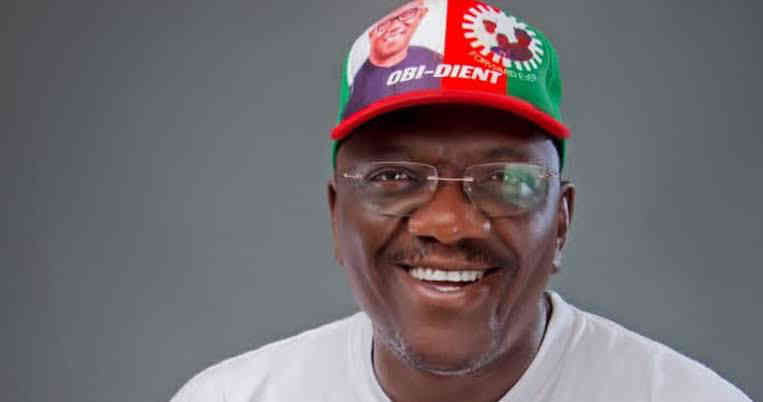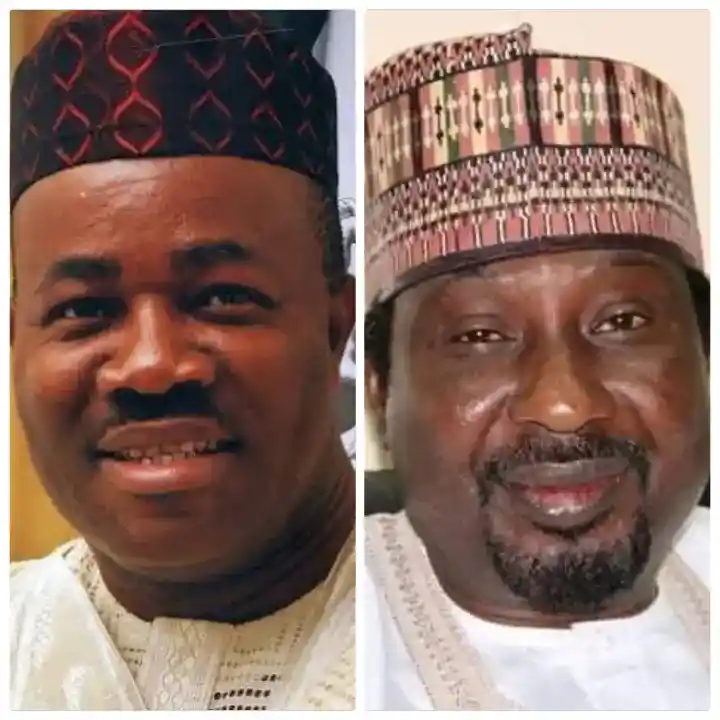Advertisements
The member representing Okpe, Sapele, and Uvwie Federal Constituency in the House of Representatives, Hon. Benedict Etanabene, has given a rare, frank account of how Nigeria’s National Assembly operates internally, particularly on issues surrounding constituency projects, funding, and empowerment programmes.
In a lengthy disclosure, the lawmaker said Nigerians are misinformed about how funds are allocated to legislators and the deep inequality between principal officers and ordinary members of both chambers.
Ejes Gist Media reports that Hon. Etanabene made the revelation while addressing misconceptions about “constituency projects” and public perceptions that lawmakers routinely access billions of naira for personal or political gain.
The Truth Behind Constituency Project Funding
Etanabene stated that the National Assembly budget is centrally managed by the leadership of both the Senate and the House of Representatives. According to him, a few principal officers control huge allocations, while ordinary members receive only a fraction.
Advertisements

Also Read : Nigeria at 65: Oil Wealth, Broken Roads, and Unfulfilled Dreams
“There’s a National Assembly budget managed by the Senate President, Deputy Senate President, Majority Leader, Deputy Leader, Whip, and their deputies,” he said. “In each year’s budget, these leaders share among themselves more than 30 times what ordinary members get. In the 2024 budget, for instance, while an ordinary member gets between ₦320 million and ₦750 million for suggested projects, the leaders get billions.”
He stressed that all lawmakers do not operate at the same level, and those expecting equal results from every legislator are misinformed.
Advertisements
“No Payment Has Been Made for 2024 Projects”
Hon. Etanabene further revealed that, as of October 2024, the Federal Government had not released funds for constituency projects executed by lawmakers.
“As we speak, all the projects done by senators and members of the House of Representatives have not been paid for by government,” he explained. “Many of these projects were carried out using private or borrowed funds, just to satisfy constituents.”
He added that some empowerment programmes Nigerians attribute to government funding are, in fact, financed by the personal savings or loans of legislators.
“If you see an ordinary senator or House member doing projects or empowerment since 2023 up to October 2024, know he is using his own funds. No kobo has been paid for 2024 constituency projects,” he said.
Principal Officers Enjoy Unequal Privileges
The federal lawmaker also explained that principal officers and committee chairmen have significant advantages in attracting federal projects or funds to their constituencies.
“A Senate President, Deputy, or a principal officer can corner or attract any kind of project by virtue of office,” he said. “But that cannot be said for an ordinary member. A leader can afford to give millions to another member, while the rest of us beg for lifelines.”
Etanabene said this disparity is a major reason corruption thrives within the system, as those with influence can manipulate project allocations and financial disbursements to their advantage.
“No Kobo Received Since Election”
The Okpe/Sapele/Uvwie representative expressed frustration over the financial strain ordinary lawmakers face while trying to meet the demands of their constituents.
“I have not received ₦1 million from the Assembly since I was elected,” he declared. “I’m not talking about salaries or allowances. Salaries and allowances cannot cover the financial demands of constituents—funerals, school fees, medical bills, house rent, and community support.”
He lamented that the high expectations placed on legislators have created an unfair burden.
“If this is what being a lawmaker means, people can come and take their House of Reps seat. It’s debt, debt, and more debt. We cry privately,” he added.
The Unequal System Within the National Assembly
Etanabene described the current structure as an “animal farm situation,” where a few members enjoy privileges far beyond others.
“We are not equal at all,” he said. “The chairmen of certain committees and the leadership enjoy enormous benefits. Many of us just struggle to survive.”
He emphasized that the real work of legislators is to debate bills, move motions, and represent public interest—not to construct roads, provide transformers, or build schools.
“People misunderstand the role of a legislator. We are not governors or executive chairmen. Our job is to legislate and provide oversight. But Nigerians now expect us to be the first child in every family,” he said.
“I Have No Interest in Re-Election”
Hon. Etanabene said he is no longer concerned about whether he gets re-elected, adding that he prefers to speak the truth rather than conform to political deception.
“The day you see me seeking re-election, give your vote to another person,” he said. “Senator Dafinone is even poorer than before joining the Senate. Forget all the display of wealth. There’s no money anywhere; many of us are in debt.”
He also blamed systemic compromise in government for the country’s deepening corruption and mismanagement of public funds.
“Our collective destiny has been mortgaged by leaders who bring peanut projects to us, yet fail to question waste and embezzlement,” he said. “Government borrows recklessly, executes projects without proper approval, and nobody questions it because of compromise.”
Inside the Animal Farm
Etanabene described the legislature as a reflection of Nigeria’s broader inequality.
“You can enter the National Assembly rich and come out poor, or enter poor and leave as a billionaire,” he said. “It depends on your party, your cabal, your family name, or how much you can buy your space. That’s the system.”
He insisted that Nigerians should understand that senators and representatives are not all equal, and the media often misrepresents how constituency funds are managed.
“Ninety percent of information out there on social media is wrong and misleading,” he said. “People should learn how government funds are disbursed before accusing lawmakers of looting billions.”
Call for Accountability and Understanding
Hon. Etanabene concluded by urging Nigerians to differentiate between executive responsibilities and legislative functions.
“The duties of a representative are to move motions, debate bills, and speak on issues that affect constituents,” he noted. “We are not supposed to build federal roads or act like governors. Our job is to ensure good governance and fairness.”
He emphasized that while principal officers can influence projects and attract institutions to their regions, the same cannot be said for ordinary members who have little or no access to such privileges.
“We are not equal, and people must understand that before casting blame,” he stated.
Key Takeaways:
- National Assembly funding is unequally distributed among lawmakers.
- As of October 2024, no payments had been made for approved constituency projects.
- Many lawmakers allegedly use personal or borrowed funds to execute projects.
- Principal officers and committee chairmen enjoy massive advantages in access to funds and project allocations.
- Etanabene says most public assumptions about “billions” allocated to lawmakers are false and misleading.

